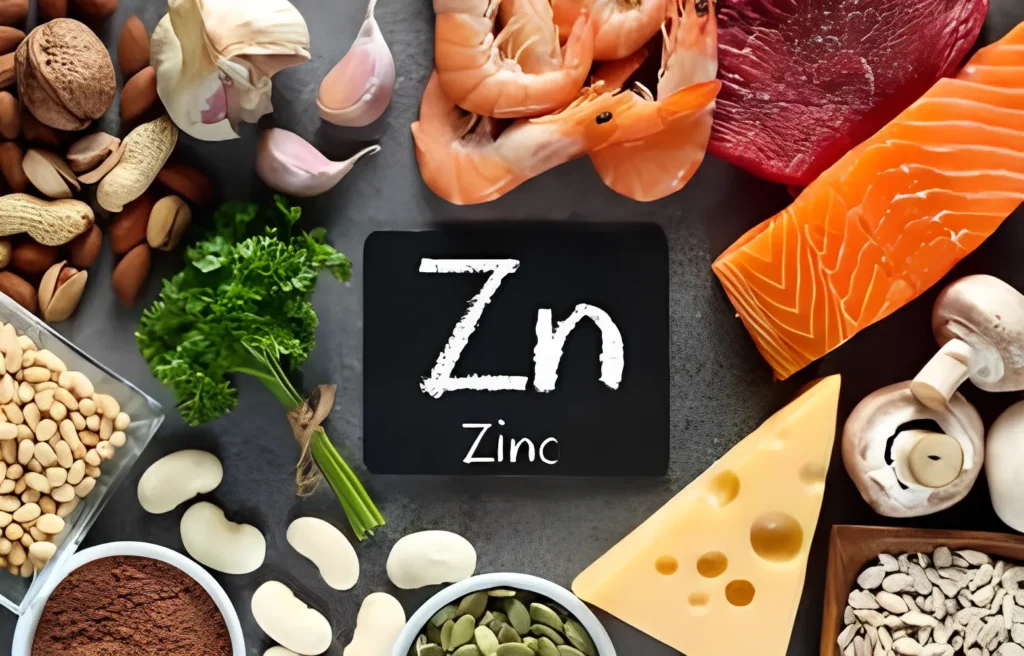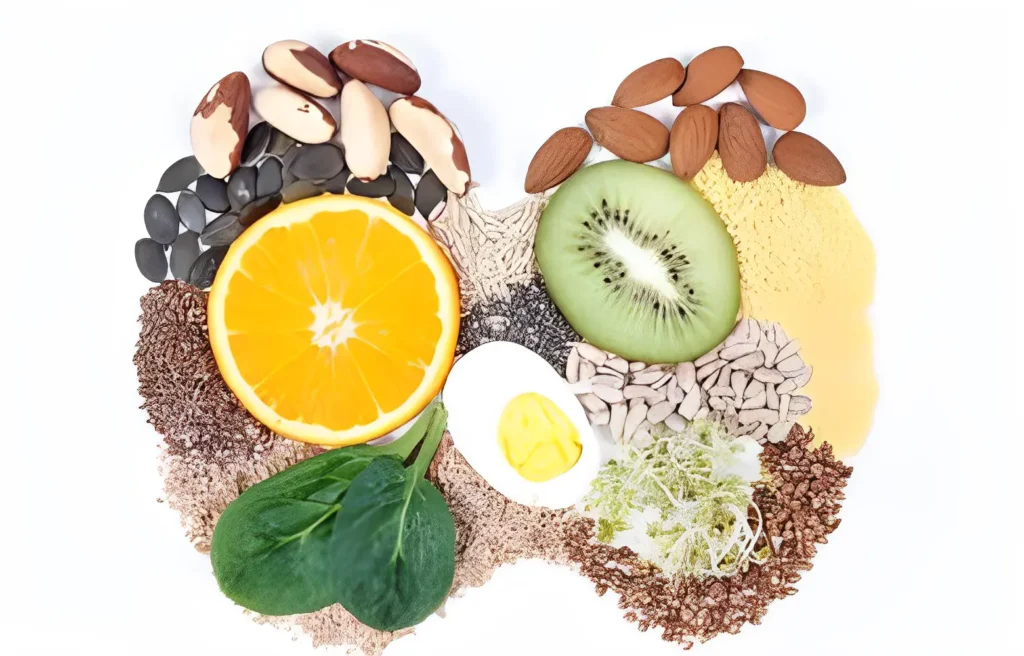Sluggish and foggy? Hypothyroidism could be the culprit. While medication is essential, a well-crafted hypothyroidism diet can be your secret weapon for boosting energy and well-being. However, forget the one-size-fits-all approach! Your body’s unique response to food depends on gut health, genetics, even stress. Don’t fret, though! Consult a doctor about potential sensitivities and work with a registered dietitian to create a personalized plan rich in fruits, veggies, lean protein, and healthy fats. Remember, it’s a gradual journey, so be patient, track your progress, and celebrate those small wins – the path to feeling vibrant starts with the right steps!.
And let’s face it, navigating the vast world of “hypothyroidism diets” can feel overwhelming. Between conflicting advice, restrictive lists, and jargon-heavy medical speak, where do you even begin?
Here’s the good news: managing your hypothyroidism through diet is absolutely possible, and it doesn’t have to be a confusing, flavorless slog. In fact, embracing the right foods can empower you to feel more energized, focused, and in control of your well-being.
So, whether you’re a seasoned hypo warrior or just starting your journey, buckle up! This comprehensive guide to the hypothyroidism diet will debunk myths, empower informed choices, and equip you with actionable strategies to thrive, not just survive.
Ready to reclaim your energy and feel good again? Let’s dive in!
P.S. Did you know that even subtle dietary tweaks can make a big difference for people with hypothyroidism? (Source: https://www.niddk.nih.gov) Keep reading to discover the power of personalized food choices!
1. Beyond “Eat Healthy”: Understanding Your Individual Needs:

Hold on, hold on! Before you dive headfirst into the latest hypothyroidism diet trend, let’s pause and ponder: is one-size-fits-all advice ever truly helpful?
Think about it – your thyroid is a unique little butterfly fluttering away inside you, and just like snowflakes, no two are exactly alike. So, why should your hypothyroidism diet be any different?
Here’s the truth: your individual needs matter a whole lot when it comes to managing your thyroid health. This means that blindly following generic diet plans might not be the most effective approach. But fear not, fellow warrior! By understanding your personal blueprint, you can unlock the key to a hypothyroidism diet that truly works for YOU.
Ready to embark on this personalized journey? Let’s get started!
1. What’s Your Thyroid Function Saying?
Your doctor already ran some tests, right? Those results hold valuable clues! Different types of hypothyroidism (underactive thyroid) require different approaches. For example, Hashimoto’s, an autoimmune form, might benefit from specific dietary adjustments compared to other variations.
2. Listen to Your Body’s Whispers (and Yells!)
Feeling sluggish after that morning bowl of oatmeal? Notice your weight fluctuating despite diligent calorie counting? Pay attention to how your body reacts to certain foods! These reactions can guide you towards what fuels your energy and what throws your system off balance.
3. Food Preferences Matter (Yes, Really!)
Forget forcing down kale if you hate the taste. ♀️ Embrace the joy of finding healthy options you actually enjoy and can stick with in the long run. Remember, consistency is key in the hypothyroidism diet game!
4. Allergies or Sensitivities? No Problem!
Don’t let dietary restrictions hold you back. With a little creativity and guidance from a registered dietitian, you can still craft a nourishing hypothyroidism diet that caters to your specific needs.
Stay tuned for the next section, where we’ll delve into the essential nutrients for your unique hypothyroidism diet journey! Remember, personalization is power.
P.S. Feeling overwhelmed? Don’t hesitate to seek professional help! A registered dietitian or healthcare professional can tailor a hypothyroidism diet plan that fits your individual needs and preferences.
2. Key Nutrient Spotlight:

Ever wonder why kale works wonders for your friend with hypothyroidism, but leaves you feeling sluggish? The truth is, there’s no one-size-fits-all hypothyroidism diet. Our unique needs play a huge role in which nutrients we thrive on . Let’s delve into some key players and how to personalize your approach for optimal well-being!
Iodine: It’s the thyroid hormone superstar, but too much can actually worsen symptoms! Confused? Don’t be! The American Thyroid Association suggests aiming for 150mcg daily, found in seaweed, fish, and iodized salt. But ask your doctor if supplementation is right for you, especially if you have autoimmune thyroiditis. ⚕️
Selenium: This antioxidant powerhouse helps your thyroid convert T4 (inactive) to T3 (active) hormone. Find it in Brazil nuts, eggs, and seafood. Did you know just 1-2 Brazil nuts daily can meet your needs? But beware, exceeding the recommended amount can be harmful, so check with your doc first!
Zinc: Think of it as a thyroid function cheerleader! It supports hormone production and conversion. You’ll find it in oysters, beef, lentils, and pumpkin seeds. Fun fact: zinc deficiency is actually quite common, so getting enough is crucial. Still, ** consult your doctor** to ensure optimal levels. ⚕️
Iron: Feeling fatigued despite your best efforts? Low iron, linked to hypothyroidism, could be the culprit. Combat it with leafy greens, fortified cereals, and lean meats. But be mindful, too much iron can be detrimental, so seek your doctor’s guidance for personalized recommendations.
B Vitamins: These B-team champs support energy production, crucial for those battling fatigue. Find them in whole grains, legumes, and bananas. Did you know vitamin B12 deficiency is particularly common in people with hypothyroidism? It’s best to have your levels checked by your doctor and supplement if needed.
Remember, this is just a starting point! Tailoring your nutrient intake based on your unique needs and preferences is key. Consult a registered dietitian or your doctor for a personalized hypothyroidism diet plan that empowers you to thrive! ✨
P.S. Did you find this helpful? Let me know your thoughts in the comments below!
3. Food as Medicine:

Ready to harness the power of food to navigate your hypothyroidism journey? Fantastic! But remember, the ideal hypothyroidism diet isn’t a rigid rulebook; it’s a personalized roadmap to optimal health.
Why? Every person’s thyroid is unique, influenced by factors like gut bacteria, genetics, and lifestyle. What fuels your friend’s energy might leave you feeling sluggish. So, the key lies in understanding your individual needs.
Let’s explore some key considerations:
1. Dietary Preferences: Are you a meat-eater, vegetarian, or vegan? Each offers different protein sources that can impact your thyroid differently. Explore alternatives with a registered dietitian to find what works best for you.
2. Sensitivities & Allergies: Do you have any food sensitivities or allergies like gluten, soy, or dairy? These could be hindering your progress. Identifying and addressing them can significantly improve your well-being.
3. Specific Symptoms: Fatigue, weight gain, or constipation? Targeting these with specific foods can make a big difference. Research suggests cruciferous vegetables (broccoli, etc.) might help with weight management, while fermented foods can support gut health and potentially alleviate digestion issues.** (Include links to credible sources like medical journals or government websites)
4. Activity Level: Your energy needs vary based on your lifestyle. An active individual will require different dietary support than someone with a more sedentary routine.
Remember: Consulting a registered dietitian specializing in hypothyroidism is invaluable. They can tailor a personalized plan that considers your unique needs, preferences, and medical history.
Unlocking the Power of Food:
The right hypothyroidism diet isn’t about strict limitations; it’s about empowerment. It’s about discovering delicious, nutritious foods that make you feel your best. Remember, small changes add up! Start by exploring healthy recipes within your dietary preferences and experiment with incorporating nutrient-rich options that target your specific concerns.
Always consult with a qualified healthcare professional before making significant dietary changes, especially if you have a diagnosed medical condition like hypothyroidism.
4. Tailoring Your Approach:

Struggling with fatigue, weight gain, or other bothersome symptoms? You’re not alone. These are common experiences for people with hypothyroidism. While medication is crucial, optimizing your diet can play a significant role in managing your symptoms and improving your well-being.
But here’s the catch: What works wonders for one person might not work for another. Your unique body, influenced by factors like gut bacteria, genetics, and lifestyle, needs a personalized approach.
So, how do you find your nutritional sweet spot? Let’s explore some key questions:
- What are your biggest concerns? Is it fatigue dragging you down? Weight gain impacting your confidence? Pinpointing your primary concerns helps guide your dietary adjustments.
- What does your plate look like now? Are you fueling your body with nutrient-rich, whole foods? Or are processed options dominating your meals? Understanding your current eating habits is the first step towards change.
- Do you have any food sensitivities or allergies? Gluten, soy, or dairy issues can complicate things. Identifying and addressing these with a healthcare professional can significantly improve your well-being.
Remember: This is a journey, not a quick fix. Experimenting with different food groups and consulting a registered dietitian are key to unlocking the power of food for managing your hypothyroidism.
Resources:
- National Institute of Diabetes and Digestive and Kidney Diseases: https://www.ncbi.nlm.nih.gov/books/NBK519536/
5. Beyond Food: A Holistic Approach:

You’ve nailed the hypothyroidism diet, now let’s explore the bigger picture! Remember, managing hypothyroidism is a multifaceted journey, and nourishing your body extends beyond just food. So, what else can empower your well-being?
Think of it like building a robust support system for your thyroid. Beyond the delicious fuel you provide, there are powerful tools you can explore to optimize your health and live vibrantly with [hypothyroidism].
Let’s peek into some potential avenues:
Mind-Body Connection:
- Stress and sleep are intricately linked to thyroid function. Have you considered exploring mindfulness practices like meditation or yoga to manage stress? Studies suggest** [insert link to relevant study]** they can significantly improve sleep quality and potentially reduce stress hormones impacting your thyroid.
- Ever wondered if physical activity could be your ally? Absolutely! Tailored exercise routines, with guidance from your doctor, can boost energy levels, improve mood, and support weight management – all valuable contributors to [hypothyroidism] management.
Complementary Therapies:
Important disclaimer: Always consult your doctor before trying any new therapy, especially if you have underlying health conditions.
- Intrigued by the potential of acupuncture or massage therapy? While research into their impact on [hypothyroidism] is ongoing, some studies** [insert link to relevant study]** suggest they may offer benefits like improved sleep and reduced anxiety. Remember, discussing these options with your doctor is crucial to ensure their safety and suitability for your individual needs.
Remember: Embracing a holistic approach isn’t about adding pressure; it’s about exploring what resonates with you and complements your hypothyroidism management plan. Start small, experiment with different options under your doctor’s guidance, and discover what helps you shine brighter on your well-being journey!
Always consult with a qualified healthcare professional before making any significant lifestyle changes, especially if you have a diagnosed medical condition like hypothyroidism.
Conclusion:

So, you’ve embarked on the exciting journey of exploring food as medicine for hypothyroidism. By now, you understand it’s not a one-size-fits-all deal, right?
Remember: Your unique body, with its distinct gut microbes, genetics, and lifestyle, dictates how it interacts with food. What worked wonders for your cousin might leave you feeling like a sluggish sloth. But don’t fret!
Unlocking your personal nutritional fingerprint is the key to transforming food into your ultimate wellness weapon. And guess what? You’re not alone in this quest! A registered dietitian specializing in hypothyroidism can be your trusty guide, crafting a plan that nourishes your body and fuels your vibrant life.
Ready to take the next step? Ask yourself:
- What small changes can I experiment with this week? Maybe it’s swapping sugary drinks for sparkling water or incorporating more colorful veggies into your meals.
- What resources can help me on my journey? Check out credible websites from reputable organizations like the American Thyroid Association or the National Institutes of Health for accurate information and recipe inspiration.
- How can I stay motivated and accountable? Share your goals with a supportive friend, join an online community, or track your progress in a fun way.
Remember, the hypothyroidism diet isn’t about restrictions; it’s about empowerment. It’s about discovering delicious, nourishing foods that make you feel your best, both physically and mentally. So, embrace the adventure, celebrate your progress, and enjoy the delicious ride towards optimal health!
Check out: Plant-Based Diet for Heart Health